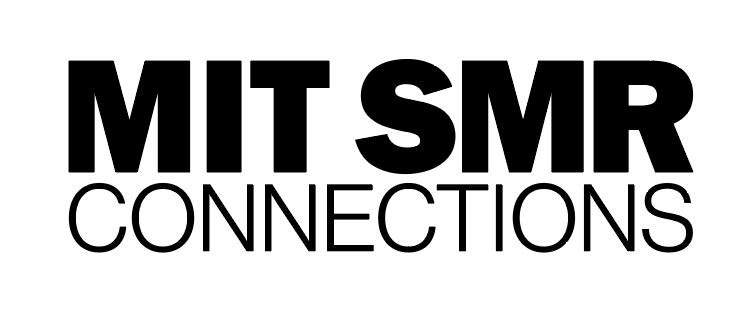How CIOs are selecting the right videoconferencing platform for companies.
In the new world of hybrid work, employers need to be more agile than ever. And selecting the right videoconferencing (VTC) platform is now just as critical—perhaps even more so—as picking the best database management system or cybersecurity partner.
“You have different people in the office, different people working from home, and that could change at any point.… You have to be ready to support any scenario,” said a research director in a 2022 industry report. “In terms of spending, I think people are going to be looking at their video-conferencing solutions … and realizing that they’re not quite up to snuff.”
VTC is among the most secure forms of enterprise communication. Hackers must access a call in real time—difficult to do without detection—and the platform doesn’t store financial data or offer easy opportunities for phishing. “Video conferencing technologies, by their very nature, limit espionage and cybercrime risk,” notes a 2020 industry report.
Yet not all VTC platforms are created equal. Companies should select one that offers both flexibility and industry-leading security—with service updates and encryption features that keep collaboration moving at the speed of innovation.
Here are the top three considerations when choosing a VTC platform.
The Power of End-to-End Encryption
Apart from lax password protocols, bad actors have just two methods at their disposal for hacking into videoconferencing software. The first involves basically wiretapping a meeting during the call itself. As data flows between computers, a third party could break into the stream and listen or observe. By default, most VTC platforms display the name of each meeting participant, making the call difficult to hack. But that can’t prevent data from being stolen in transit, a key consideration since video sessions often flow through public networks.
To ensure the security of video-data transmission, VTC platforms must offer end-to-end encryption, and one company leads the industry in this technology: Webex. According to a December 2021 industry report, Webex by Cisco offers more security and privacy controls than any other VTC platform. By standardizing end-to-end encryption, Webex, a unified communications as a service (UCaaS) platform, secures its data for transit during the compression process, so it can only be unlocked by cryptographic keys possessed by users on the sending and receiving ends. “Enterprises need to include security and privacy controls,” the report states. “Webex by Cisco is the only major UCaaS platform that met the criteria of providing ultra-secure communication and collaboration.”
When You Need Cloud Security To Be Even More Secure
The other vulnerability that hackers use to target VTC platforms? Saved files from recorded meetings.
“With most meetings using a UCaaS platform and being recorded and transcribed, enterprises need to ensure the appropriate levels of security and privacy controls are in place,” notes the 2021 report. “What you say and share with whom is being captured, and sometimes that information is being leaked outside the enterprise.”
To protect the data of enterprise customers, most VTC platforms use cloud storage. Webex takes this measure further by storing customers’ data on a private cloud server owned by Cisco, which also happens to be the world’s largest cybersecurity firm. As the world’s Best Security Company, according to the SC Awards—the cybersecurity industry’s top accolade—Cisco is a trusted partner for companies that already turn to the firm for data management and protection needs.
And since Webex is itself an international firm, it can help companies deal with the security concerns of an increasingly global workforce. Webex, which has 44 data centers around the world and dozens of certifications, remains aligned with all security guidelines established for remote work by the National Security Agency, ensuring that data stays private and complies with regional rules and regulations for hybrid workforces across the globe.
Evolving for a Safer Future
Online attackers are particularly adept at modifying how they find vulnerabilities, meaning your VTC platform must always remain a step ahead. Webex, in conjunction with Cisco products and support, leverages its global security resources to constantly evolve protective measures.
To avoid supply-chain poisoning, for instance—malware written into software during the development stage—Webex codes its essential software at company headquarters in San Jose, California. Portions written remotely are compartmentalized, so no contractor ever sees the software’s complete code. To address the risk of bug exploitation, Webex has a dedicated division that looks for coding errors and fixes them before they become a security concern. While these vulnerabilities are being patched, Webex alerts customers so they can adjust their protocols and keep data safe.
Of course, even the best security measures can be thwarted by the most common weak link—momentary lapses in judgment by employees. To help minimize the risk of careless behavior leading to an internal breach or hack, Webex layers in ethical controls for network administrators, enabling them to block certain user groups from communicating with each other or from accessing certain file types. This allows both built-in flexibility and the ability to cordon off data sets. Don’t want your contractors perusing blueprints for a product they’re not working on? Prefer that your investment bankers not swap tips with the research division? Webex lets administrators control access and communication pathways, and is even developing a tool that allows the system to sense a potential breach and automatically send an incident report to both the attacker and a compliance officer—ensuring a hack stops before it can even start.
Going forward, as chief information officers grapple with the implications of a remote-work world, one decision is easier to make than others—selecting a secure and convenient videoconferencing platform.





